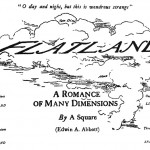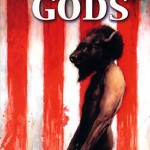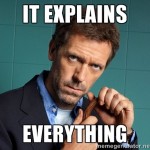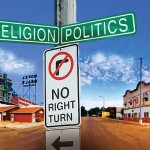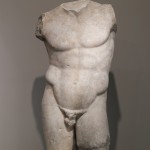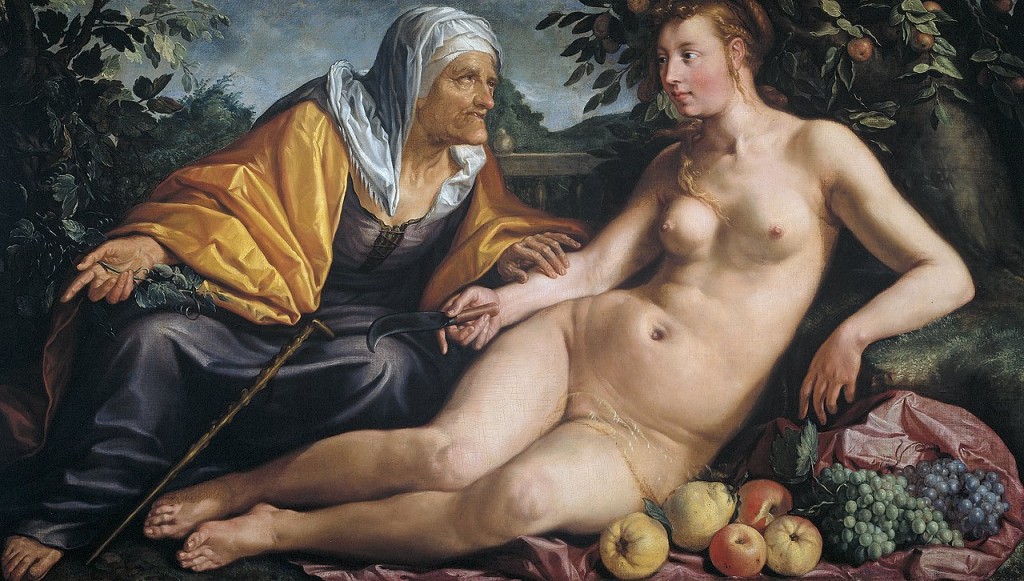
Extending Metaphors
I have noticed in discussions with many hard polytheists* a marked use of metaphor, often extended metaphors … sometimes very extended metaphors. (One of the more memorable ones, involving tigers on an airplane, was so long and convoluted I lost interest half way through.) In religious matters, I think the use of metaphors is unavoidable. We need metaphors to help communicate the ambiguities and subtleties of religious experiences.
However, from a rhetorical perspective, metaphors are always problematic. I’m a trial lawyer. And when I make an argument to a jury, I avoid metaphors as much as I can. The reason is that they can always be turned around on you.
Here’s one I witnessed a few years ago: The plaintiff’s counsel argued in closing that the defendant, who had rear-ended the plaintiff, had a responsibility to pay for the injuries they caused, just like, he said, a careless child should be made to pay for a window that is broken by a stray baseball. When it was his turn, the defense attorney responded that, when the child breaks the window, you don’t make them pay for a whole new house, and likewise the defendant should only have to pay for the injuries they actually caused and not give a windfall to the plaintiff.
Of course, we really shouldn’t be arguing about the gods — or any religious experience — the way two lawyers might argue in a courtroom. But I offer this example to highlight the limitations of analogical thinking. And for those hard polytheists who express such concern for linguistic clarity, I think the reliance on metaphors may be misplaced.
A Second Bite at the Proverbial Apple
In my last post, I suggested that we should look at the question of the reality of the gods from multiple dimensions, rather than a single one. One of the commenters responded:
“you can call an apple orange and it is still red…”
To which I responded:
“My UU minister recently told a story about a teacher and a class of kids. The teacher asked the kids what color the apple was. Most said ‘red.’ A few of the more astute ones said ‘green’ or ‘yellow.’ Then she took a knife and cut into the apple and asked them what color it was … “White,” they said.
“There’s always more than one way to look at something.”
I think the story was clever and salient. It illustrates well my original point: Just as metaphors can be looked at in different ways, the question of the reality of the gods can also be seen from multiple angles.
Coincidentally, John Beckett just wrote a post which consisted of an analogy of gods to apples. Beckett’s point, if I can summarize it, is that there are many ways to experience the gods, just like there are many ways to experience apples: raw apples, apple sauce, apple cider, etc. But at some point, we get away from the “appleness” of the thing; an apple-flavored Jolly Rancher is not an apple. (I wonder whose Paganism Beckett considers to be the equivalent of apple-flavored candy.)
I like Beckett’s metaphor. But I think it can also be used to illustrate my point about perspective.
Softening Beckett’s Apple
Hard polytheists insist on rigid ontological boundaries: the apple and the not-apple, the god and the not-god. For them, the gods are “distinct” and “individual” and “separate” from human beings. And the gods’ “distinctness” and “individual-ness” and “separateness” corresponds to their “real-ness.” The universe of the hard polytheist is like the billiard ball table of Newtonian physics which we learned about in high school; it consists of hard objects bouncing off of each other and unambiguous causal relationships.
But I think it is the “softer” science of biology which offers us more useful metaphors for understanding the divine life.* I am particularly interested in an ecological perspective on the gods, one which understands identity as fluid and porous, and sees individuals — humans, gods, and others — as interconnected and interpenetrating parts of complex systems of life.
Consider Beckett’s apple. At first glance, it is easy to say where the apple begins and ends. It has a defined surface and seems to exist independently as an object, separate of all the other objects in the world. We can name thing “apple” and describe its qualities (“red” or “sweet”) and it seems that we have comprehended the thing. And on one level, this is true.
But what if the apple is connected to a tree? Is it still a “distinct and individual” apple or is it an extension of the tree? And if it is a part of the tree, is it not also connected to the the earth, the other trees in the grove, and the whole ecosystem (of which we are a part too)?
And if we pick the apple, does not the apple remain connected to the tree in myriad ways through a shared ecosystem of soil, air, water, and sunshine. Does it not carry within it the the seeds of the tree itself? Do these connections make the apple any less real?
And if we take a bite of the apple, does it remain an apple? Does it remain the same apple? How many bites of the apple can we take until it ceases to be an apple and becomes a part of us?
We don’t even have to consume the apple for this exchange to take place. The apple is shedding its molecules to the breeze at every moment (just as everything is). If we inhale the apple’s scent, some of its molecules bind to our olfactory nerves. Has not the apple then become a part of us in some small way?
Even as we hold the apple, we leave part of ourselves on its skin, and it leaves part of itself on us — in us, actually, since our skin is not a solid boundary, but a permeable membrane.
And this is only the gross physical interactions. When we get to our subjective experience of the apple, things get even more complex.
For me, the gods are like this. There is no clear dividing line between them and us. We are a part of them and they are a part of us. And every encounter changes both them and us.
A Hard Time With Definitions
And this is where I think we get down to the “core” (collective groan heard) of my disagreement with Beckett. He wants clarity, and so, naturally, he is a hard polytheist. The path we choose often determines our destination. If we want “hard” definitions, then we will arrive at hard polytheism … or hard atheism — the two being flip sides of the same coin.
But those who can tolerate more ambiguity tend be more comfortable with fuzzier definitions of deity. And after years of pursuing clarity, I am discovering the virtues of a kind of fuzzy logic when it comes to theological questions.
Which of us is “right”? Well, each is right, depending on your perspective. Are you looking at the apple from the outside or from the inside? Are you the apple picker or the apple tree?
The choice of perspective does have very real consequences.
Beckett believes that clear definitions are essential to building his community. And I think he’s right … to an extent. But I have noticed — especially recently — that rigidity of definitions tends to correspond to other forms of rigidity. As a result, hard polytheistic communities seem to be more prone to fracturing than other polytheistic communities. The gods we choose tend to be reflections of ourselves in some ways. If we see the gods as “separate” and “individual,” like billiard balls, then we may well find ourselves smashing against the hard edges of those around us.
But if we see the gods as part of us and us as part of them, inseparable and interpenetrating, then we may find ourselves experiencing a deeper sense of communion with one another as well. Of course, a tendency toward “squishier” definitions has its own pitfalls. “Softer” polytheists may tend to be more accepting of difference, but an excess of tolerance and lack of boundaries can result in a dilution of the efficacy of community and the power of ritual. It was precisely in response to this “weak tea” Paganism that harder forms of polytheism have taken their impetus.
I don’t have the answers. But I do think we might benefit, as a community, from a multidimensional perspective, one that can see questions of theology and community from multiple perspectives and hold those differences in a creative tension.
*I’m using the term “hard polytheist” here intentionally, instead of “devotional polytheist,” because not all devotional polytheists are equally “hard” in their definitions of gods.
*The “New Physics” of quantum mechanics and chaos theory might provide other useful metaphors as well.

